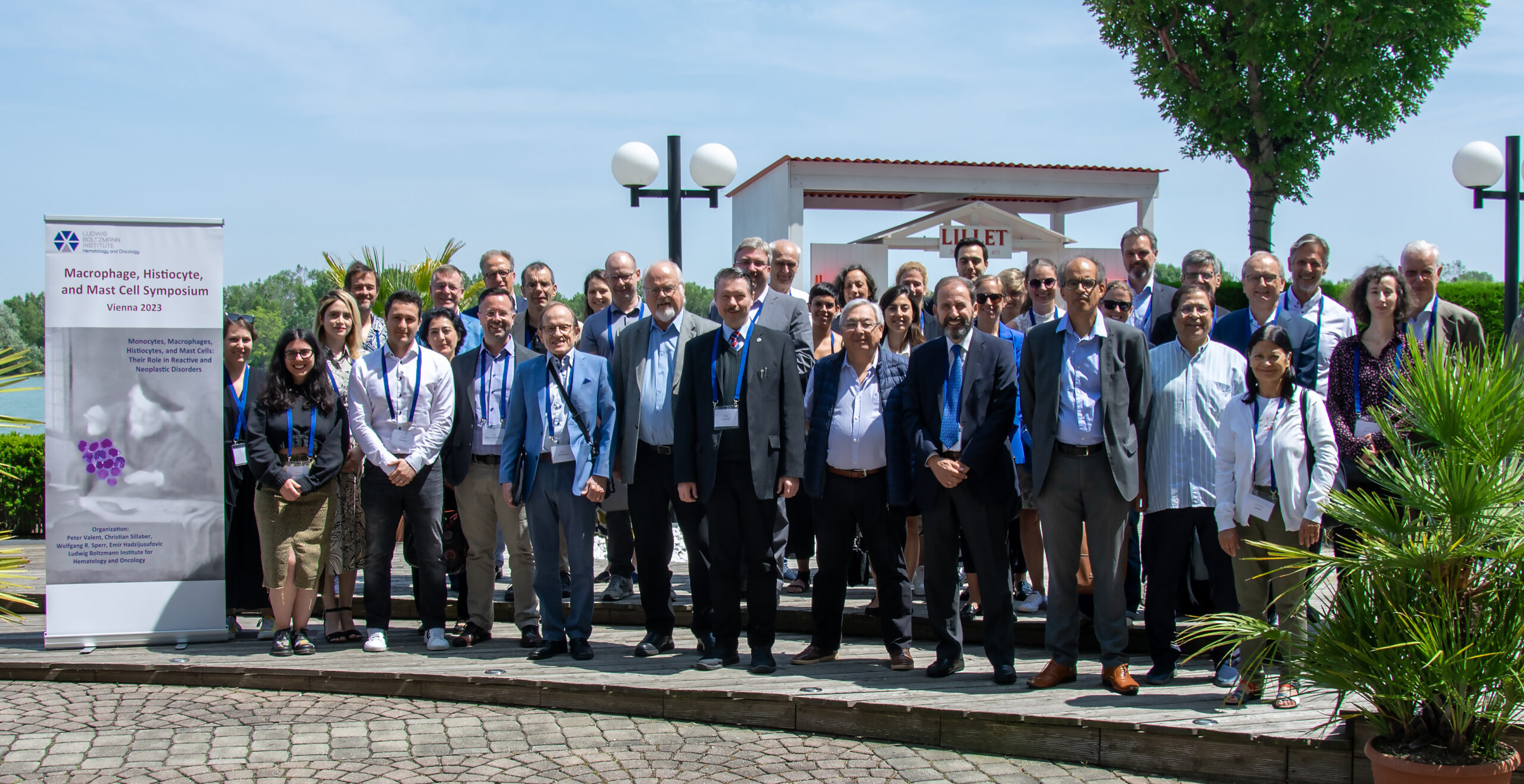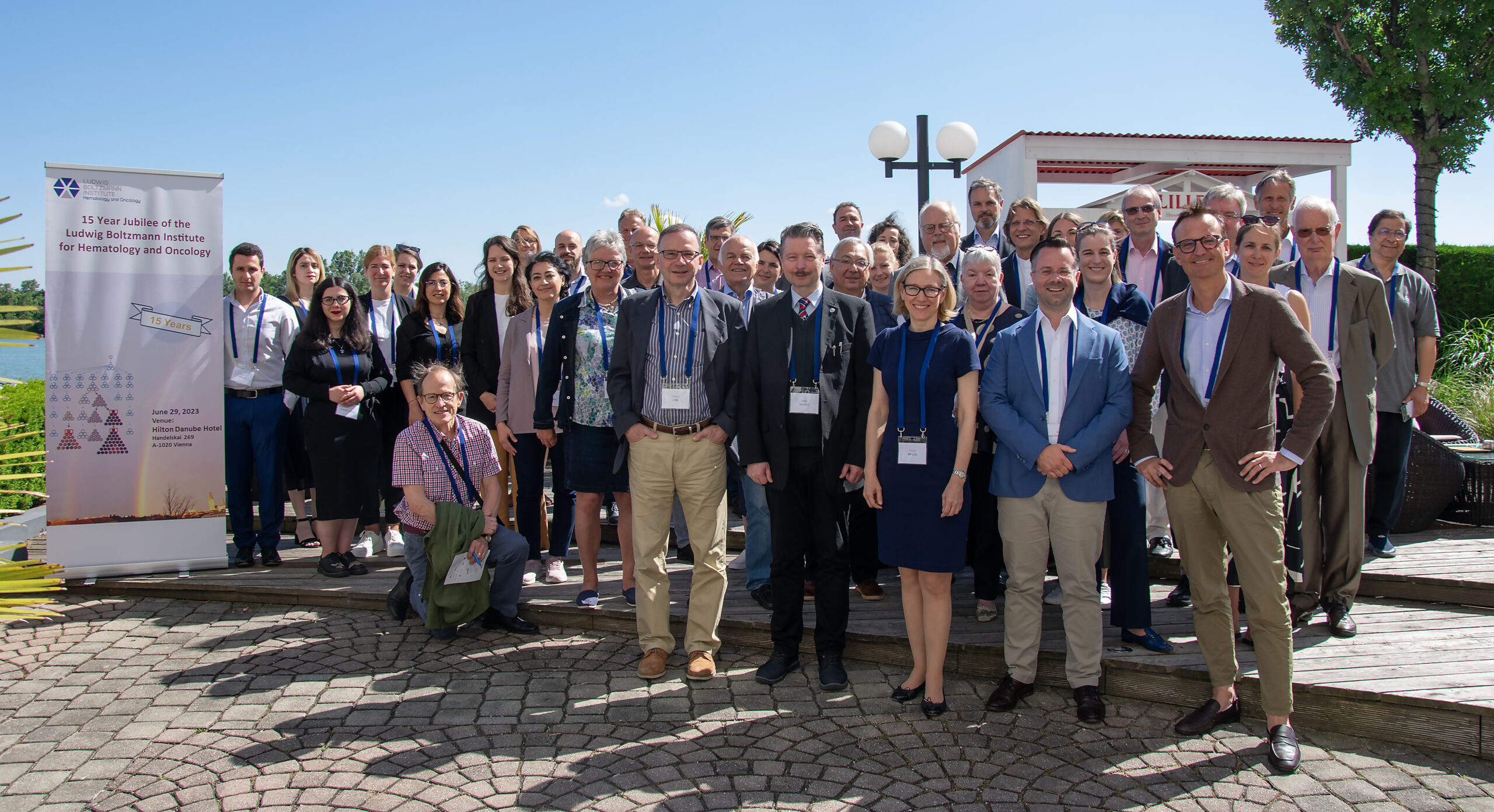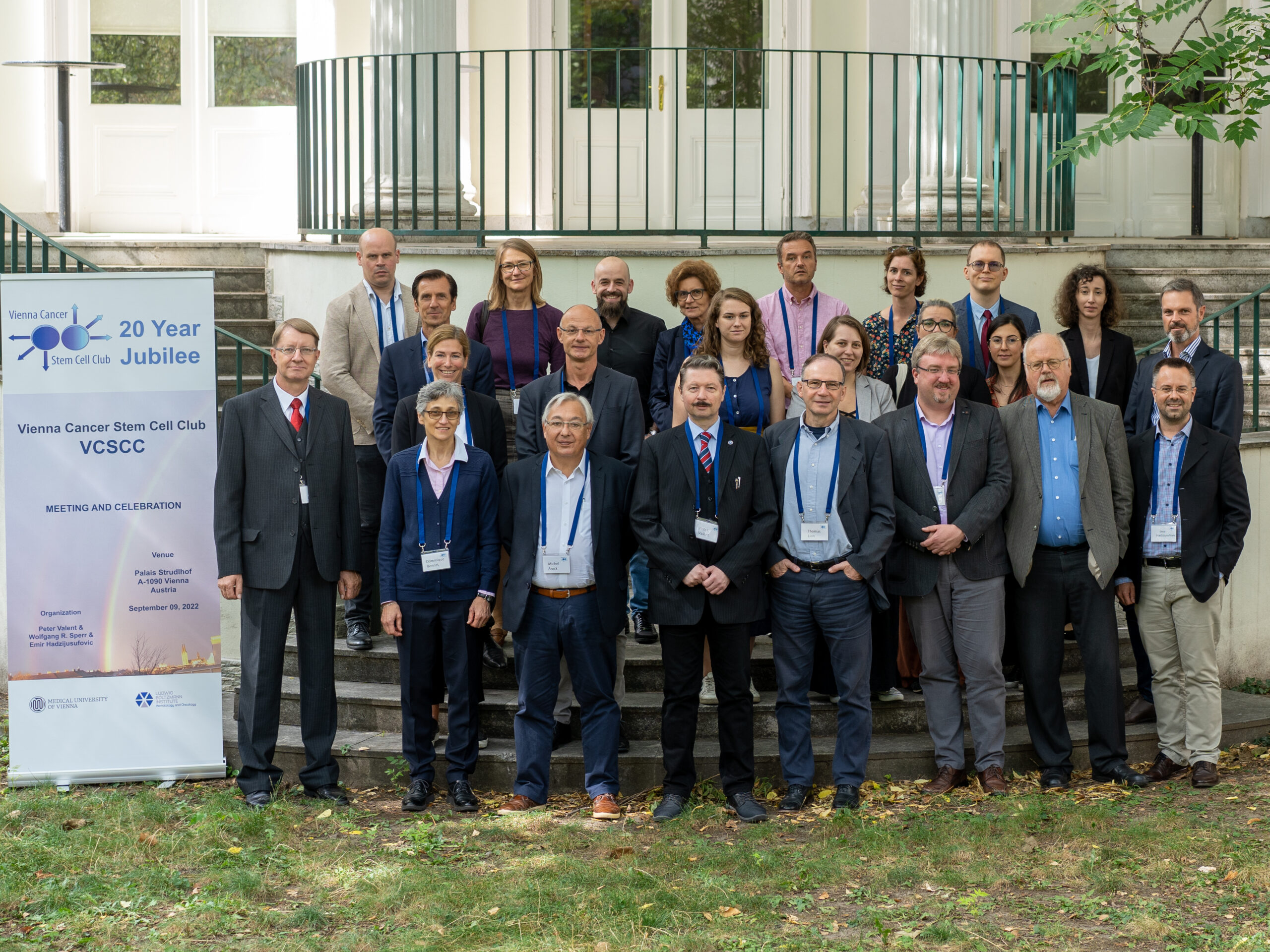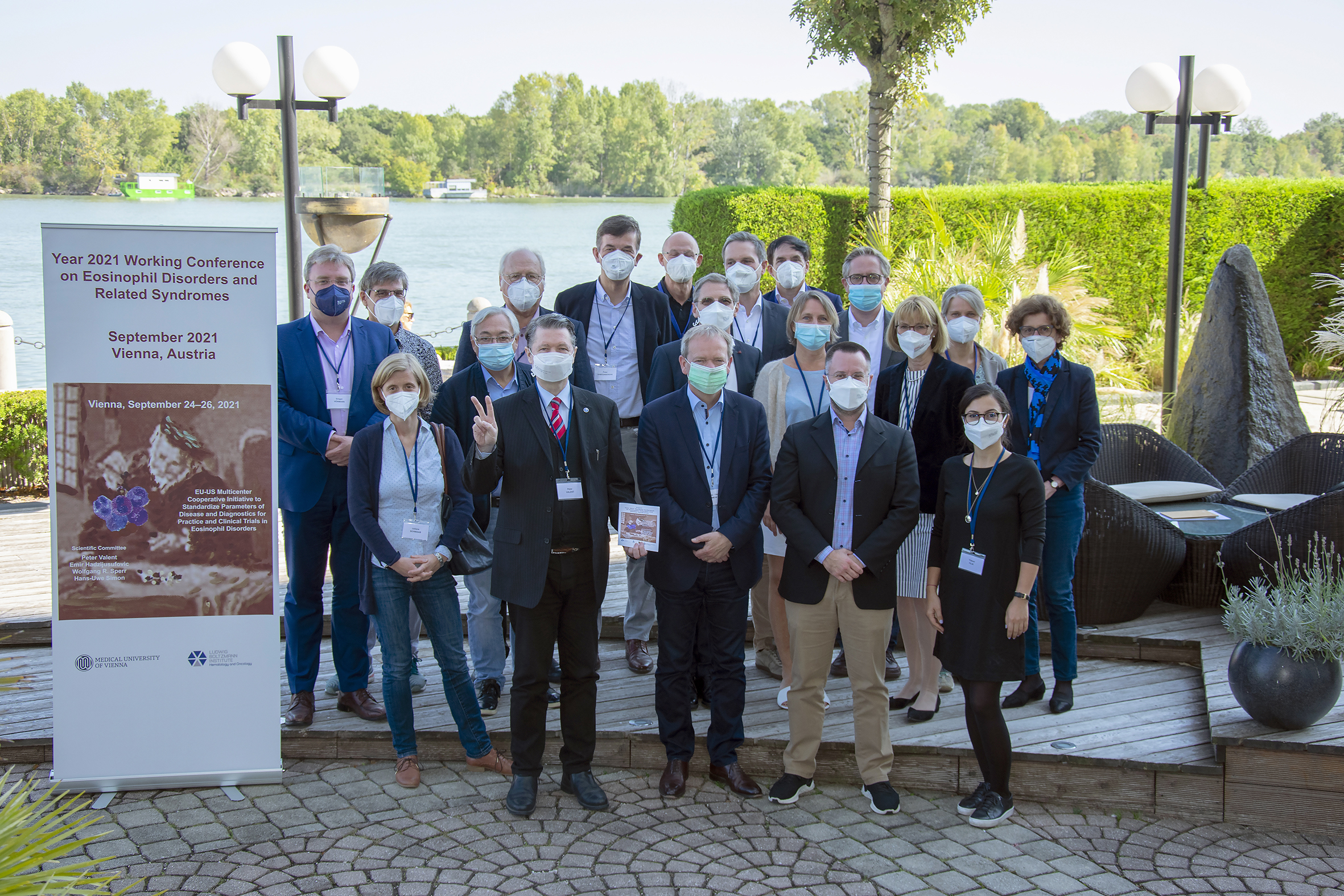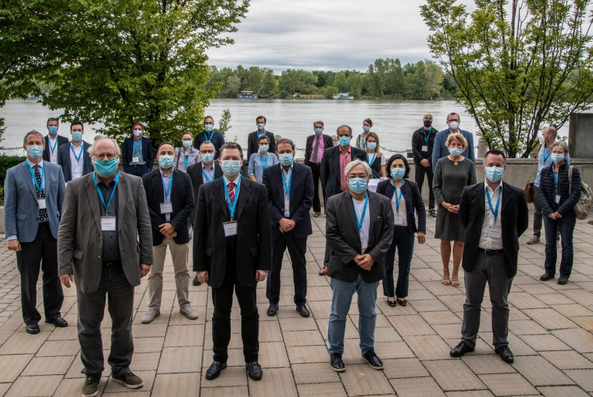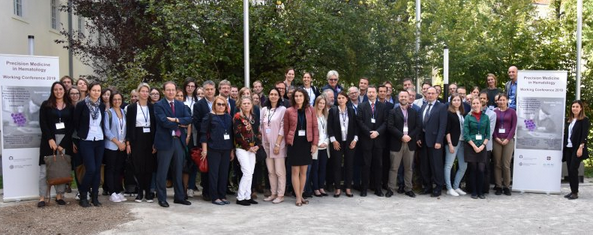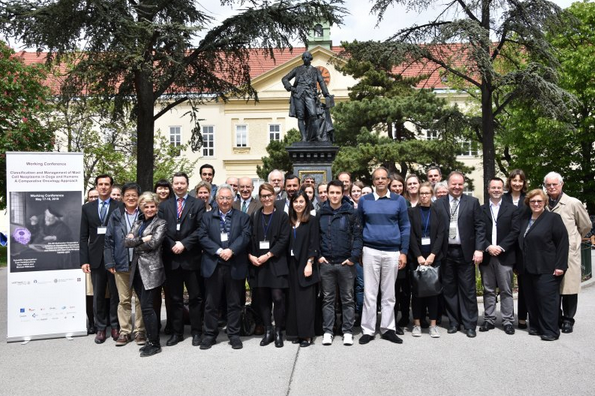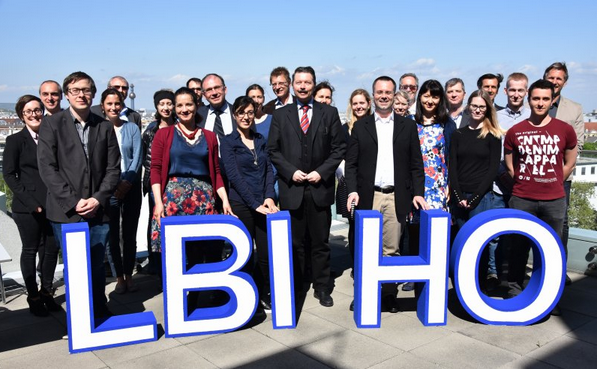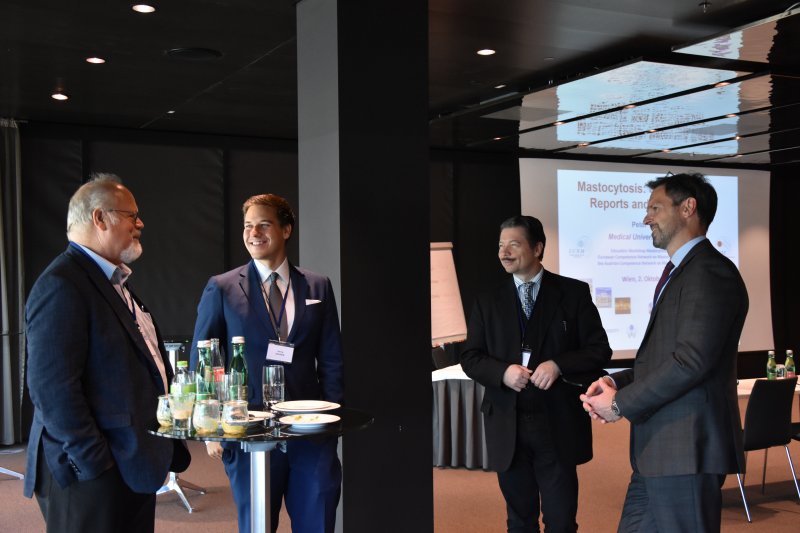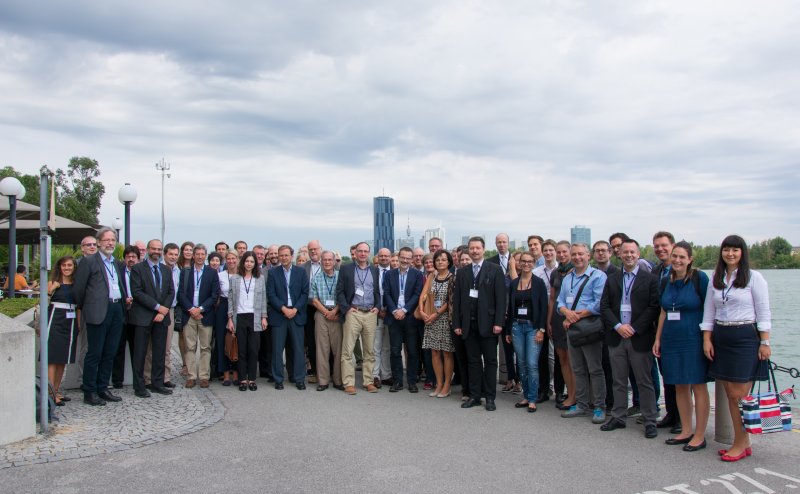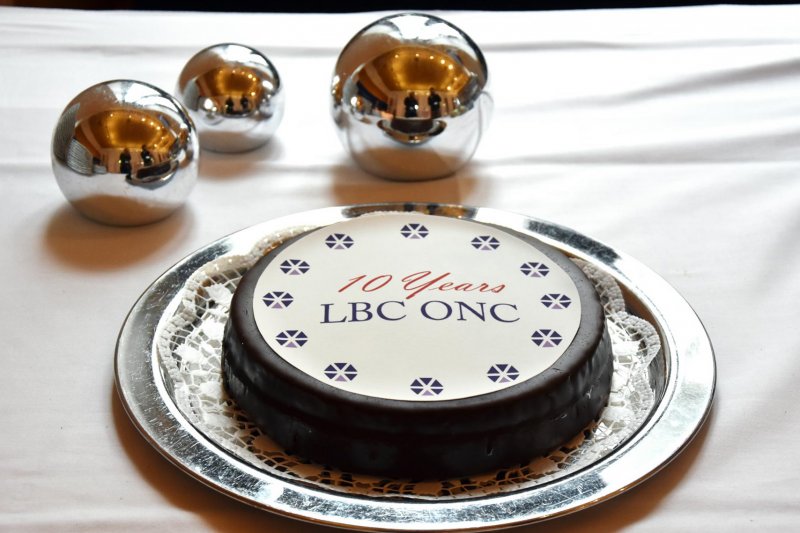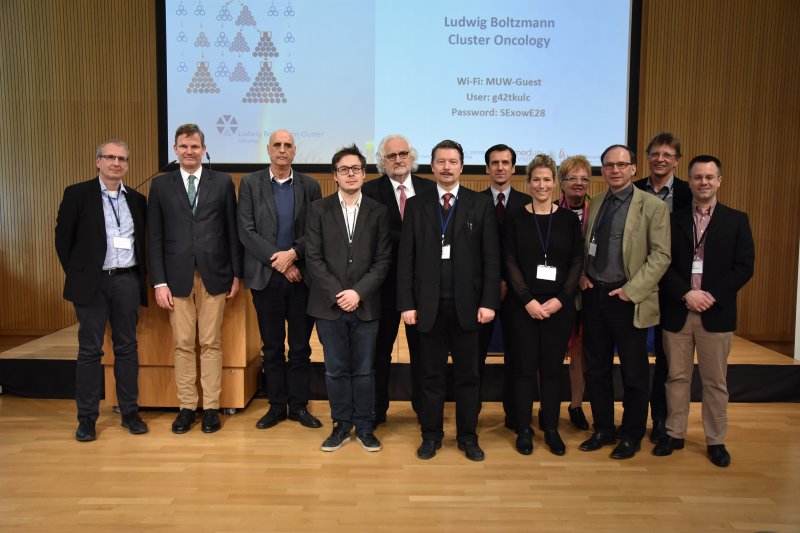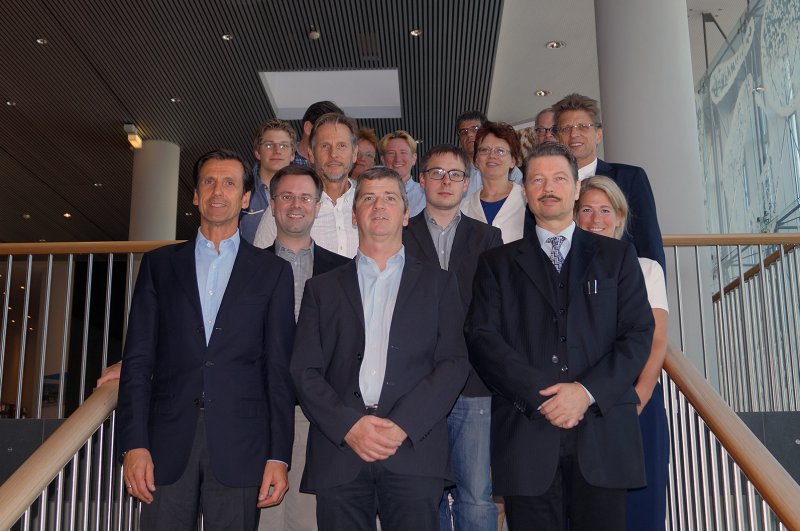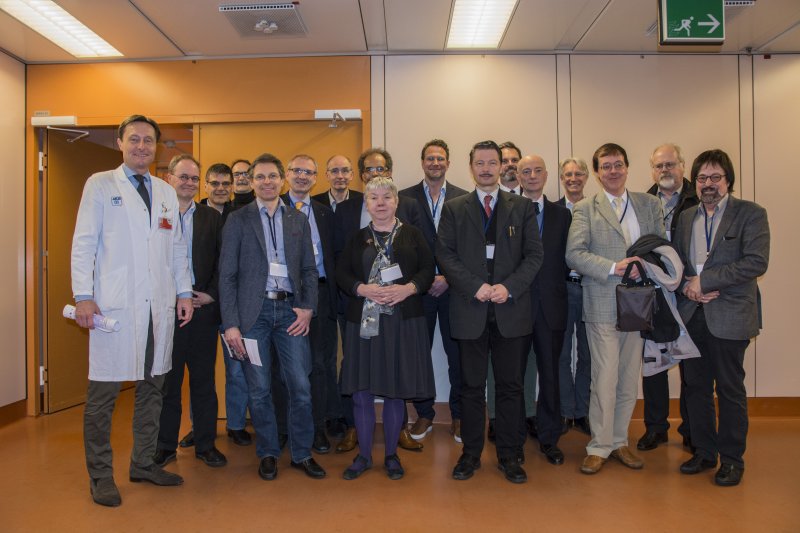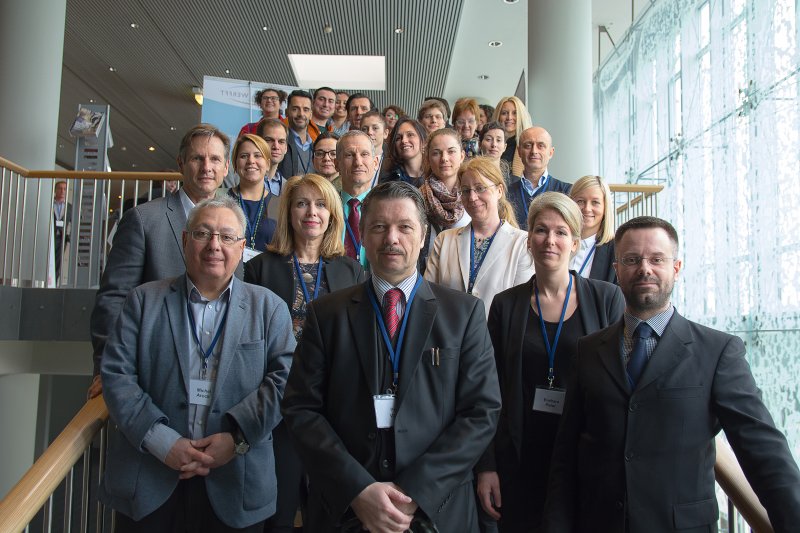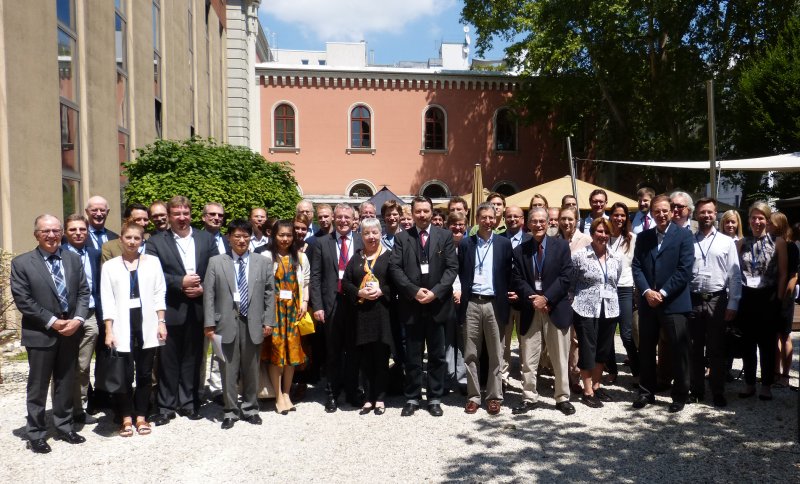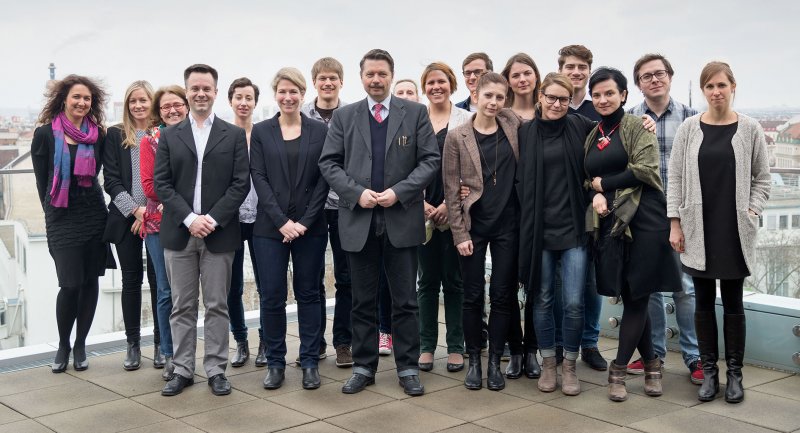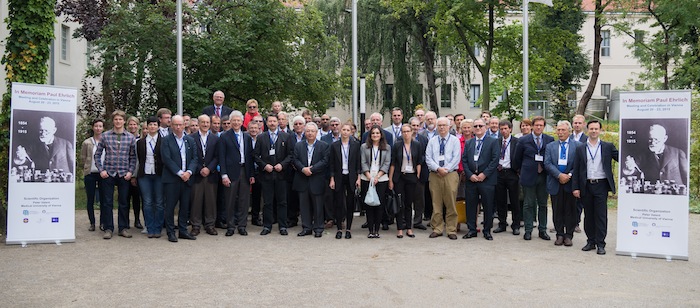The three-day Annual Meeting of the European Competence Network on Mastocytosis (ECNM) took place in Vienna this year.
Due to the COVID-19 outbreak both the Annual ECNM Meeting and the Working Conference could be participated via an online meeting platform as well as in person. Upholding COVID-related safety and social distancing measures was a challenge that was successfully mastered. It was the first time the dual mode was offered to participants and speakers and proved to be a great alternative for all those who were unable to travel to Vienna. 60 people participated in person, while around 100 joined via the online platform.
Peter Valent, and his team were proud to host this year’s meeting in a venue which is closely tied to the history of the ECNM as the very first Working Conference on Mastocytosis in the year 2000 and several other ECNM meetings took place right on the banks of the Danube river.
Karin Hartmann (University of Basel) was awarded the ECNM Researcher of the Year Award for her outstanding research on skin involvement in mastocytosis.
Presentations at the Annual Meeting covered many aspects of mastocytosis, including diagnosis of and prognostication in systemic mastocytosis, as well as the definition and management of mast cell activation and hereditary alpha tryptasemia.
In addition summaries of all ECNM Registry projects were presented and this year’s meeting was concluded with a session for patient associations where patients’ representatives could voice their views, experiences, and wishes.
The Working Conference focused on EU-US multicentre approaches to further standardise and refine parameters for disease diagnostics and treatment.
